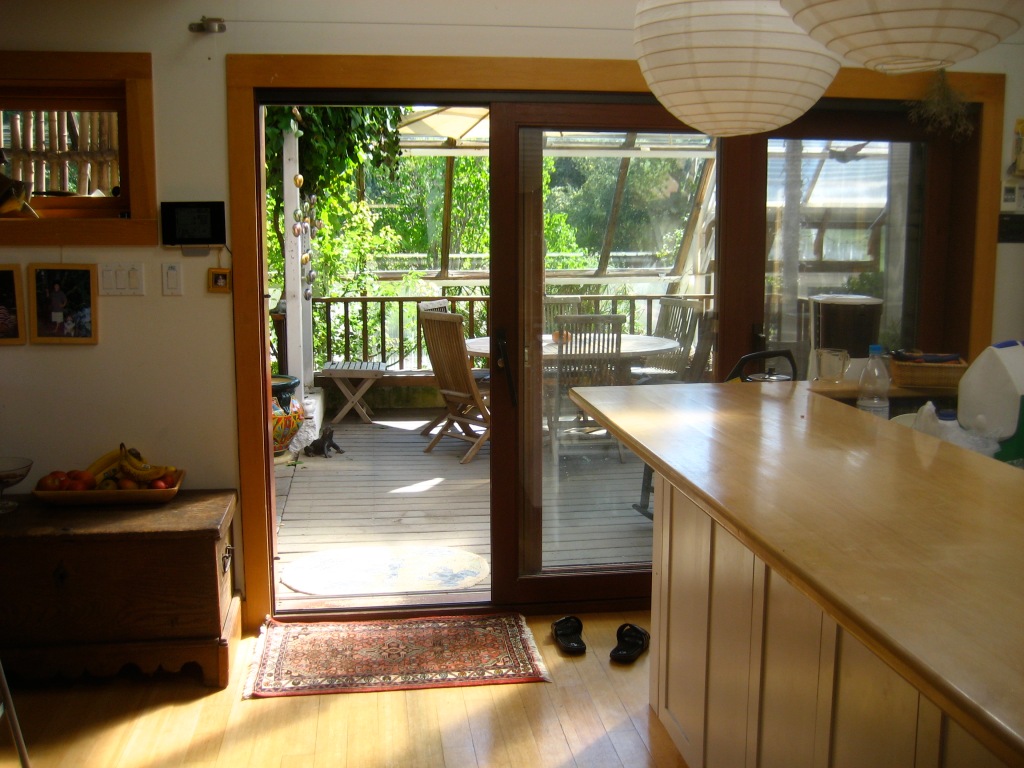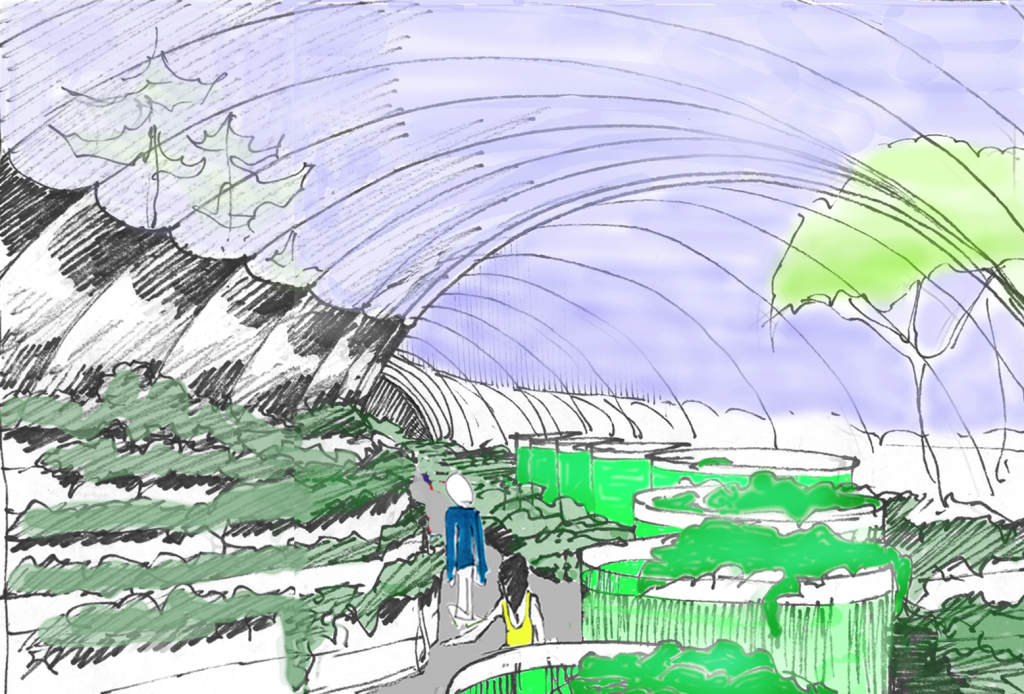The following comments were written by Hilde Maingay, read in the Cape Cod Commission’s public hearing on the Falmouth Comprehensive Wastewater Management Plan on 12/4/13 and submitted to MEPA in December. Hilde is a board member of The Green Center and the Falmouth Climate Action Team and Citizens for Economic and Ecological Sustainability. Since September 2013 she has also been a participant in the Cape Cod Commission’s 208 Area-Wide Water Quality Planning working groups.
Pollution is nothing but the resources we are not harvesting, because we have been ignorant of their value.
-Buckminster Fuller
We are completely dependent upon the natural world for our survival and prosperity.
Humanity, economy and the planet’s ecosystem operate as a single interdependent system and this system is in serious trouble.
Human activity is putting such a strain on the natural functions of the Earth that the ability of the planet’s ecosystems to sustain future generations can no longer be taken for granted. Our human activity and modern economy are based on plundering and wasting resources instead of working within the principles and laws of nature, which operates in a closed-looped economy with no waste.
The Falmouth CWMP and all CWMP’s are based on archaic regulations, most of them many decades old when governmental wealth and corporate greed allowed the development and construction of federally funded human support systems such as centralized sewers that ignored all basic laws of nature. With interconnectedness of life and links in the eco-system broken, the global and local economy and society crashes from pollution and resource depletion.
Economic crashes are just that, a reflection of environmental crashes.
The poor will suffer first and disproportionally. The gap between the poor and rich widens, with an ever increasing number of people entering poverty and a small minority holding onto most of the wealth and power to ensure the continuation of constructing wasteful human support systems such as central sewer systems and high tech, energy demanding, water filtration plants.
That is where we find ourselves now, locally, nationally and globally and this CWMP will continue this path of pollution, resource depletion and socio-economic injustice.
This CWMP and all CWMP’s have an extremely narrow focus of reducing Nitrogen loads and complying to regulatory TMDL levels, with the main purpose to qualify for state loans, but without any guarantee that by working towards or even achieving these narrow goals that the aquatic ecosystem will rebound and flourish again.
Regulations are by design narrow, and ecosystems are by design extremely complex and cannot be restored with such narrow objectives as TMDL’s.
Central sewer systems as proposed in this CWMP consume and waste resources every step of the way. At great costs central sewers remove 100% of the septic nutrient load from one watershed and dump all the nutrients, except about 70% of the Nitrogen which is gassed off, in another watershed, by means of injecting nutrient rich, now polluted drinking water, into the groundwater and hauling ALL remaining nutrients as sludge off the Cape to be incinerated and land-filled. Do we really think that we can clean our waters and environment through waste, pollution and resource depletion, while polluting air, land and water of our neighbors? Such systems will prove to be not only environmentally destructive, but economically devastating – as I mentioned earlier: when the interconnectedness of the ecosystem is broken, the economy will crash.
Systems based on ecological principles however will develop numerous co-benefits that will build resilience and closed loop, socially and environmentally just economies in the society.
During the recent 208-wastewater planning process, the Cape Cod Commission, with the help of technology experts, has developed a technology matrix, comparing many technologies that could assist in cleaning our water bodies.
Based on this matrix, a computer model was developed to evaluate these technologies and to determine which ones could reach the narrow goal of the TMDL for the least amount of money. [At a later stage all the co-benefits – such as jobs, resource recovery, energy, water conservation, social justice – or disadvantages – such as resource depletion, pollution, lack of resilience – of each technology will be added to the matrix and model, allowing a significantly broader scope of evaluating each technology.]
By running this model in our 208-working group last Monday (12/2/13), it became immediately evident that the technologies that are based on ecological principles, such as shellfish farming, eco-toilets and storm-water mitigation can reach the TMDL goals at the least costs and, as we might expect, also with the most built-in resilience and co-benefits.
Knowing this and realizing the global climatic, environmental and economic demise we are in, how could anyone with a clear conscience accept (and finance!) a CWMP that focuses first and foremost on the least adaptive, most expensive, wasteful system of central sewering, instead of starting with the most adaptive and least expensive, environmentally benign systems?
The Cape Cod Commission’s technology model showed it clearly: start with the low hanging fruit and use adaptive management to adjust as needed.
Isn’t this the reason for the 208 planning process? To find the least expensive, most sustainable and resilient technologies to clean Cape Cod waters?
Isn’t this the reason why the Falmouth citizens have also spoken clearly and with their money? They want to see these ecologically based systems applied and see what they can achieve BEFORE investing in more central sewering.
Financing and investing in this CWMP is a waste of money and resources no human society can afford to waste, and neither can Falmouth.
I am urging the citizens, the local and state regulators, the Cape Cod Commission and the engineering firms and industry to think outside the box and no longer accept, develop and fund systems that allow clean drinking water to be polluted and wastewater to be chewed and stirred up in energy intense mechanical and chemical processes and then spit out in our groundwater, rivers, and oceans.
The Clean Water Act states that groundwater, streams, rivers and oceans can no longer be considered part of the wastewater treatment process.
The Cape Cod Commission’s 208 Area-Wide Water Quality Planning objective is to find the “cheapest, fastest, and greenest approaches” to resolve the water pollution problems.
Lets plan and act accordingly.
Remember: “Pollution is a valuable resource in the wrong place”.
Let’s manage pollution as a beneficial resource. This is not a technological problem, this is a political problem.





Share your thoughts!